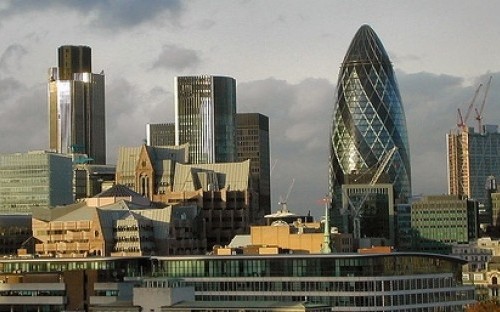In entertainment and fashion circles, names such as Beth Ditto, Jean Paul-Gaultier and more recently Ricky Martin are popular lesbian and gay stars, but most of us would struggle to name an openly gay business leader.
Unlike in show business, coming out of the closet in the grey-suited world of business is still a taboo subject. Lesbian, gay, bi-sexual and transgender (LGBT) representation, particularly in
In an interview with a British newspaper Lord Browne, the former chief executive of BP spoke candidly about his resignation in 2007 when he was outed by his former lover.
“It was obvious to me that it was simply unacceptable to be gay in business, and most definitely the oil business,” said Browne who had worked at BP for 40 years.
According to Peter Johnson of
“Business organizations... have a vested interest in marketing their goods and services to LGBT consumers, who, according to Wealth Bulletin from Dow Jones, make up one of the wealthiest minority groups in the
Last month, the Gay and Lesbian Network (GLN ) of London Business School (LBS) hosted its first annual networking event for LGBT MBA students and alumni called EUR-OUT. More than 60 individuals from across
MBAs interviewed on the night said that they are open about their sexuality with colleagues, whereas others concluded that when working in more conservative regions such as the
“
Prior to studying at LBS, Simonazzi worked in the M&A division for Citigroup covering Italian corporate clients out of
“In Citigroup, in the first couple of years at work, I was not out. In Investment Banking, it takes some effort and guts to be out. At Citigroup there was a pleasant environment and once I decided to be out it was much easier,” recalls Simonazzi.
“It’s not that I’m walking around with a feather boa, but if someone asks me, I would say I’m dating this guy...”
See below for a quick interview with LBS's Simonazzi. Apologies for the poor lighting. The restaurant was dark and BusinessBecause's bargain basement cameras don't have lights!
{{video:embed url="http://vimeo.com/10611682"}}
Multinational corporations are waking up to the needs of their LGBT employees and Johnson credits Goldman Sachs, Barclays, JP Morgan, Morgan Stanley, Citigroup, Credit Suisse and RBS as creating a “welcoming environment for talented LGBT employees.”
“For firms operating in the
Although
“It is commonly accepted in North American and European societies that discrimination on the basis of gender or ethnicity is wrong, but the debate over LGBT rights is still very much alive,” says Johnson.
Stonewall, the equality charity has published a Top 100 Workplace Equality Index identifying the best companies for LGBT employees.
RECAPTHA :
88
0e
79
ec







